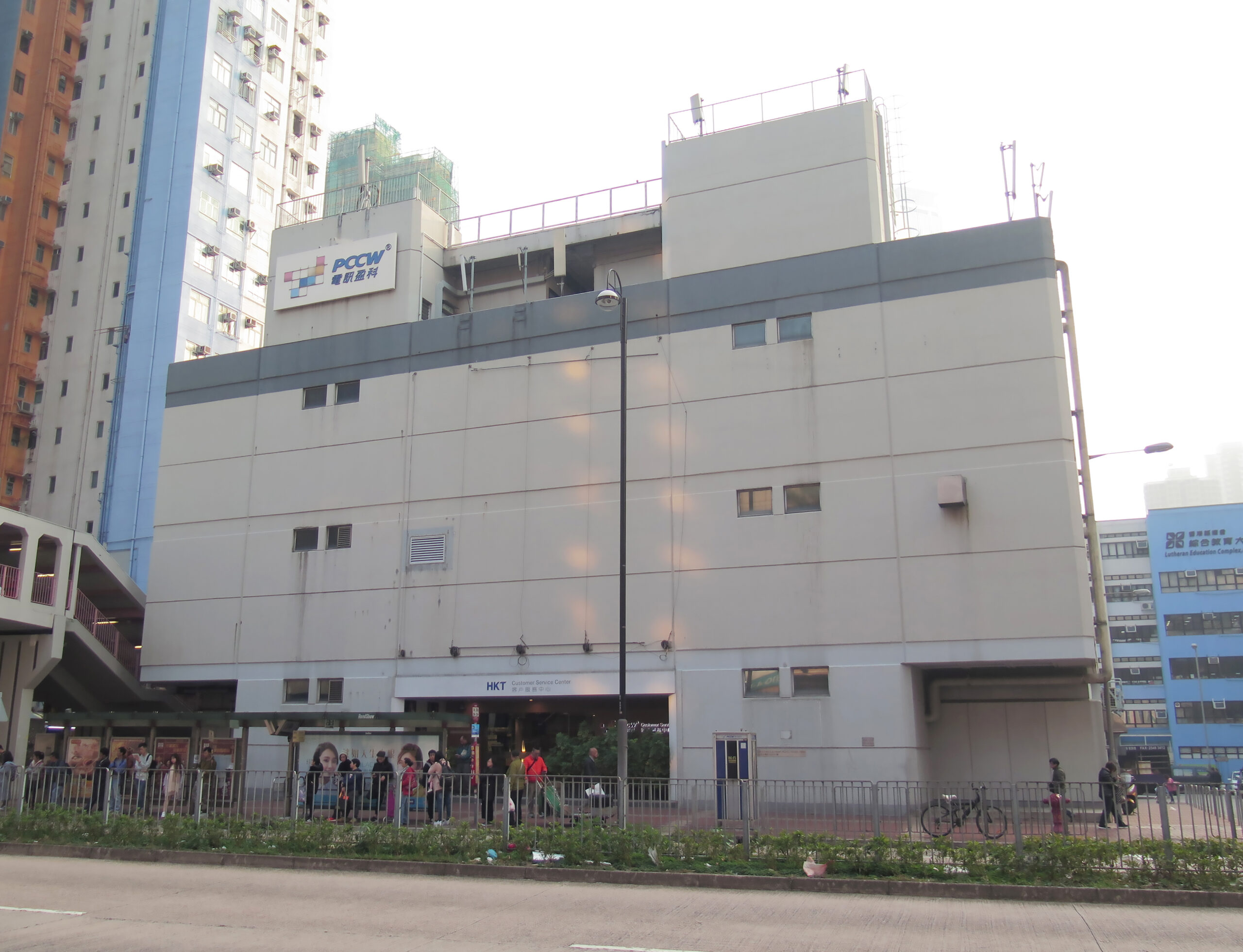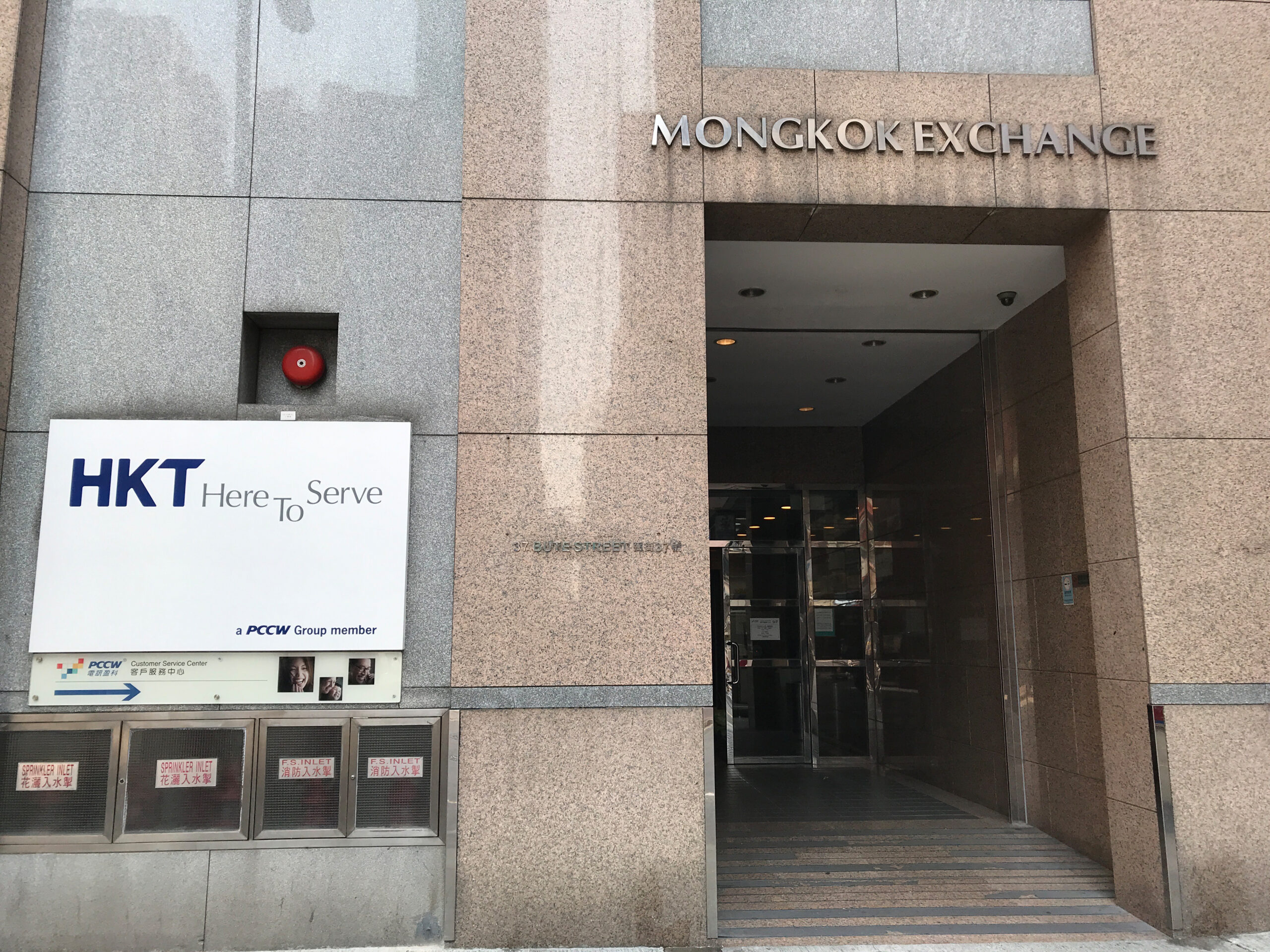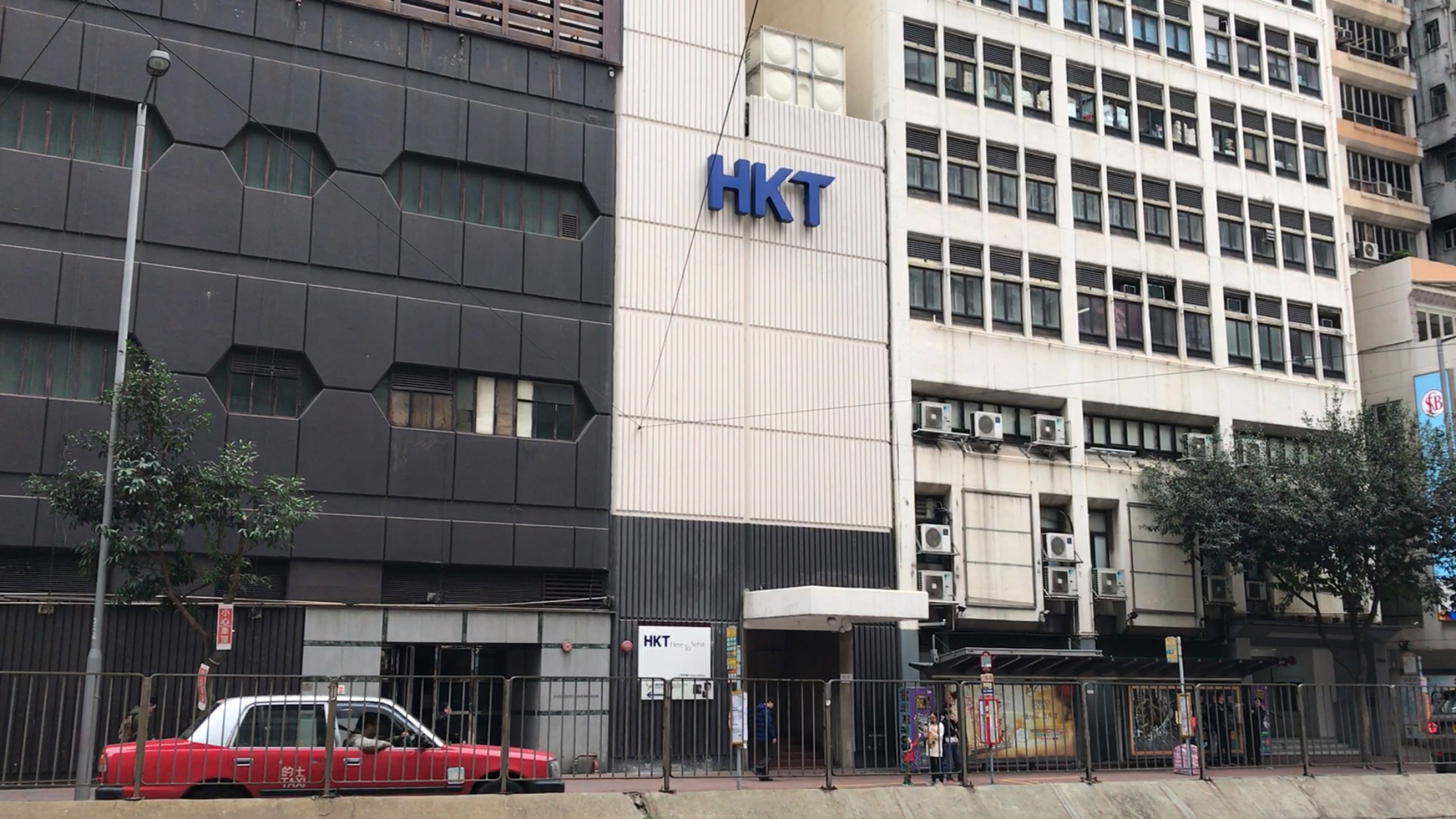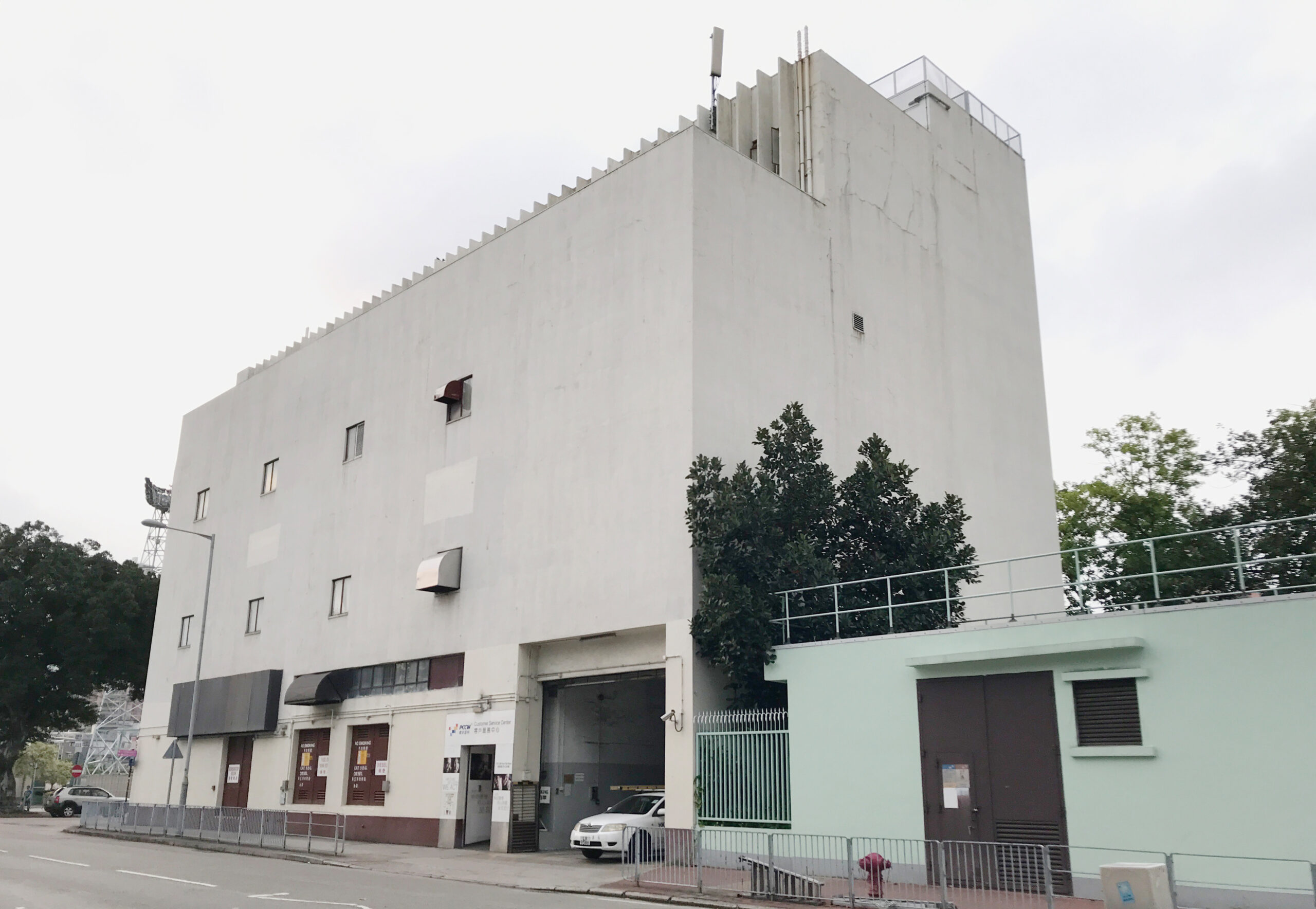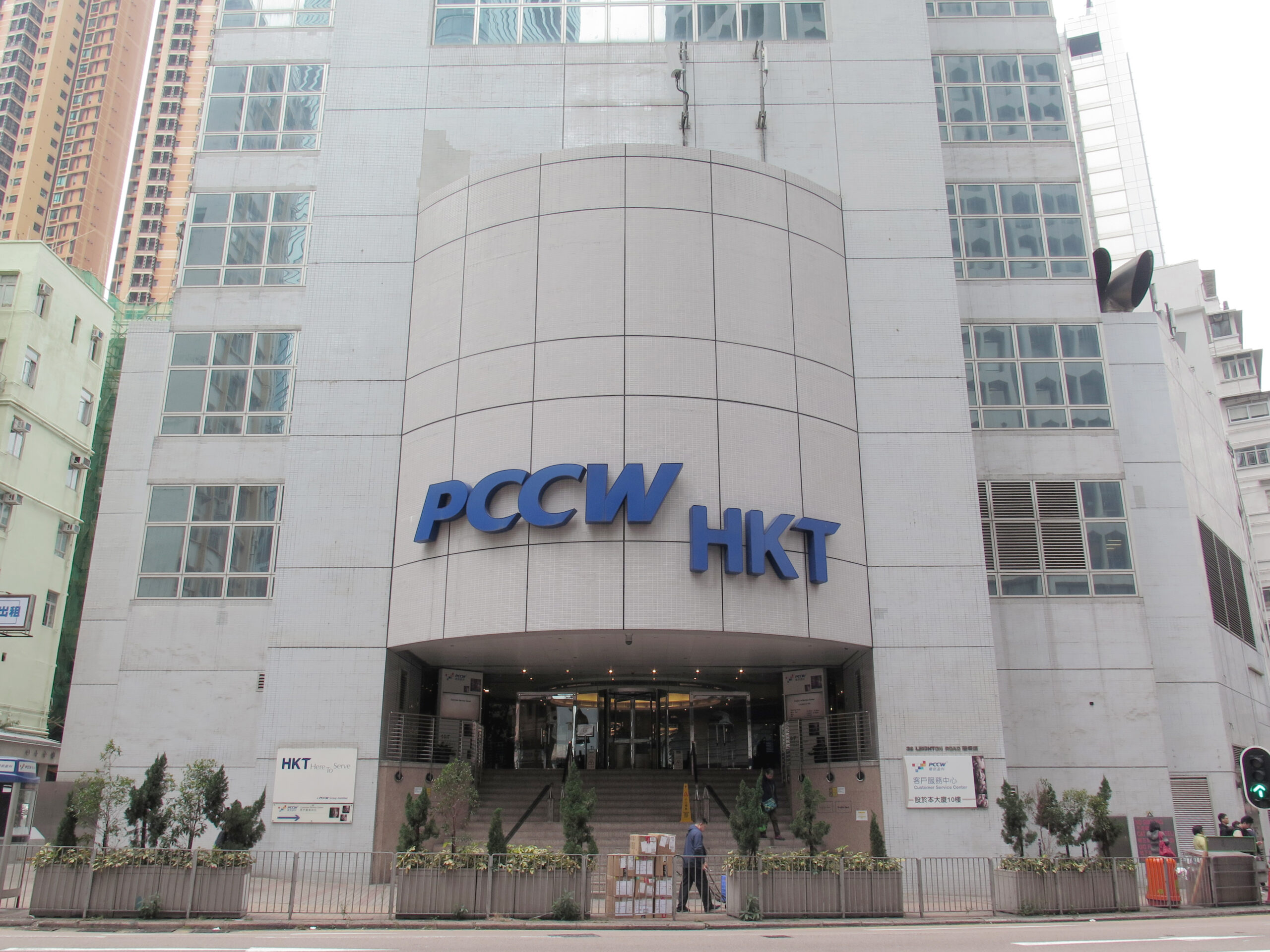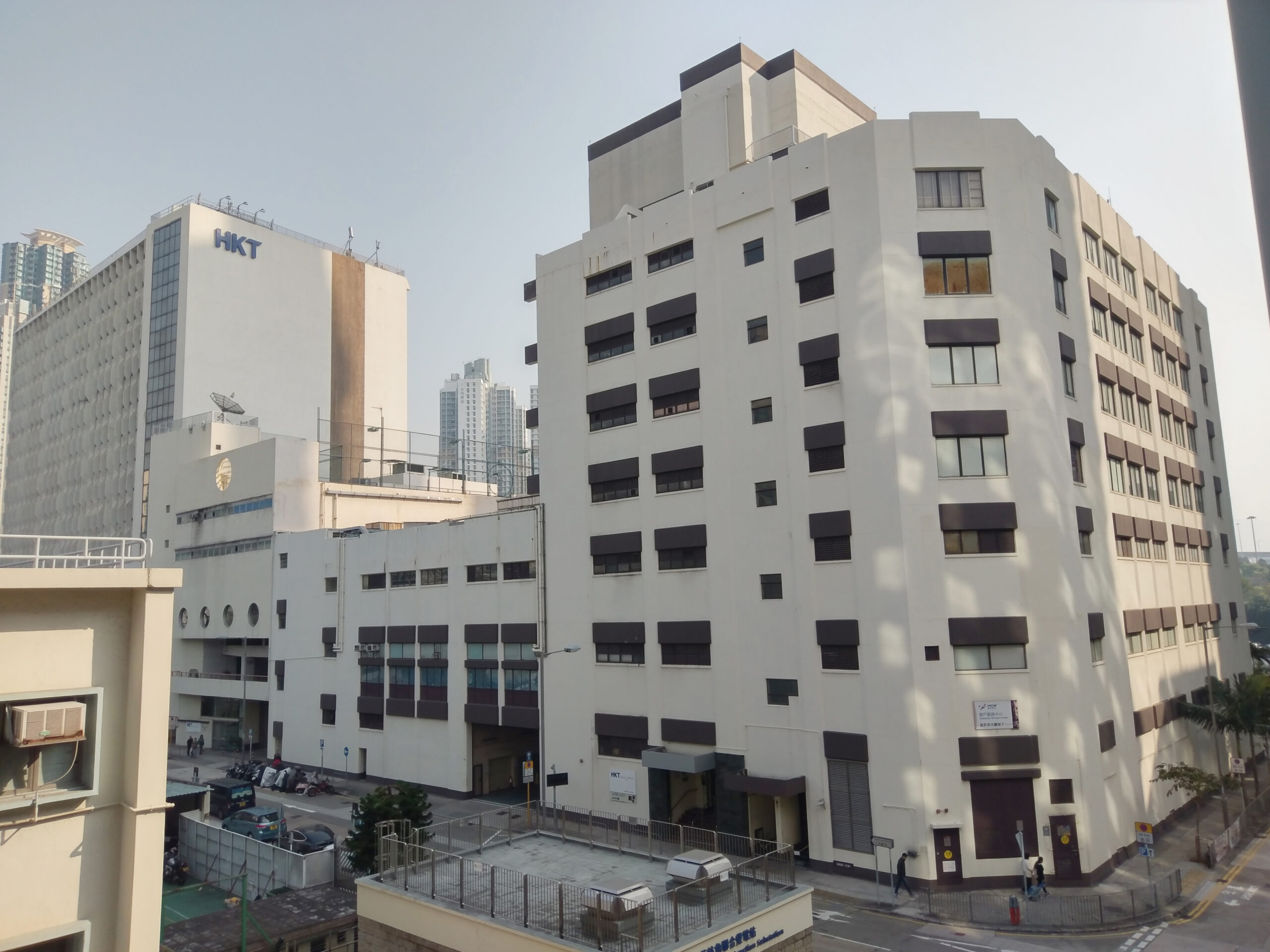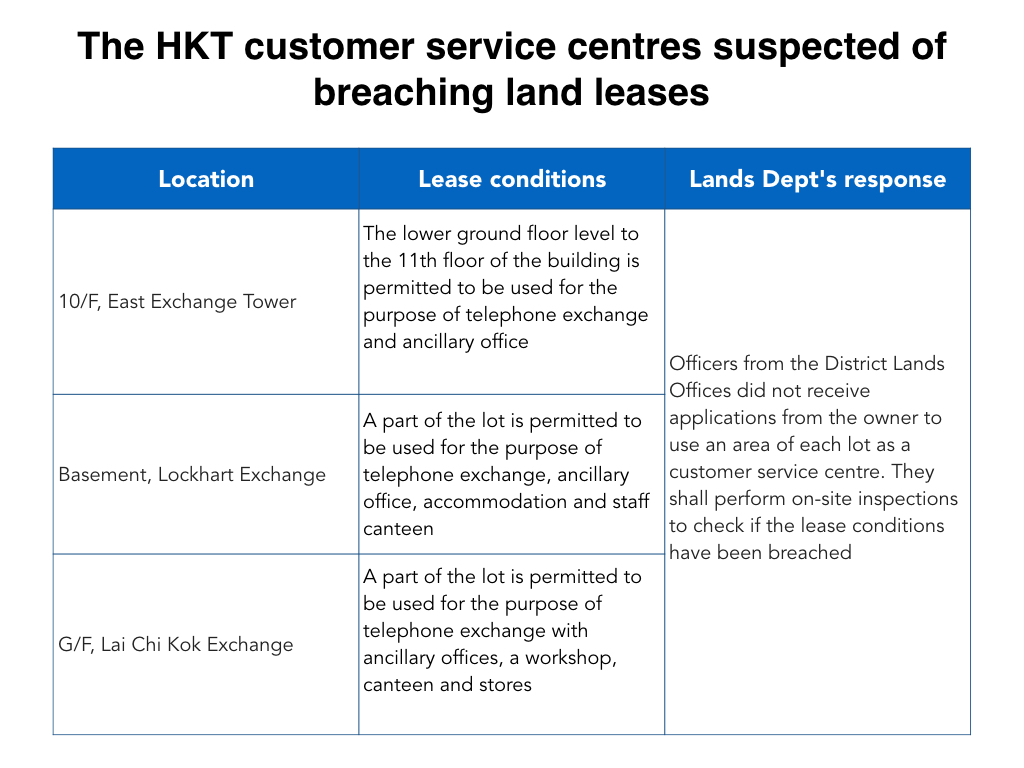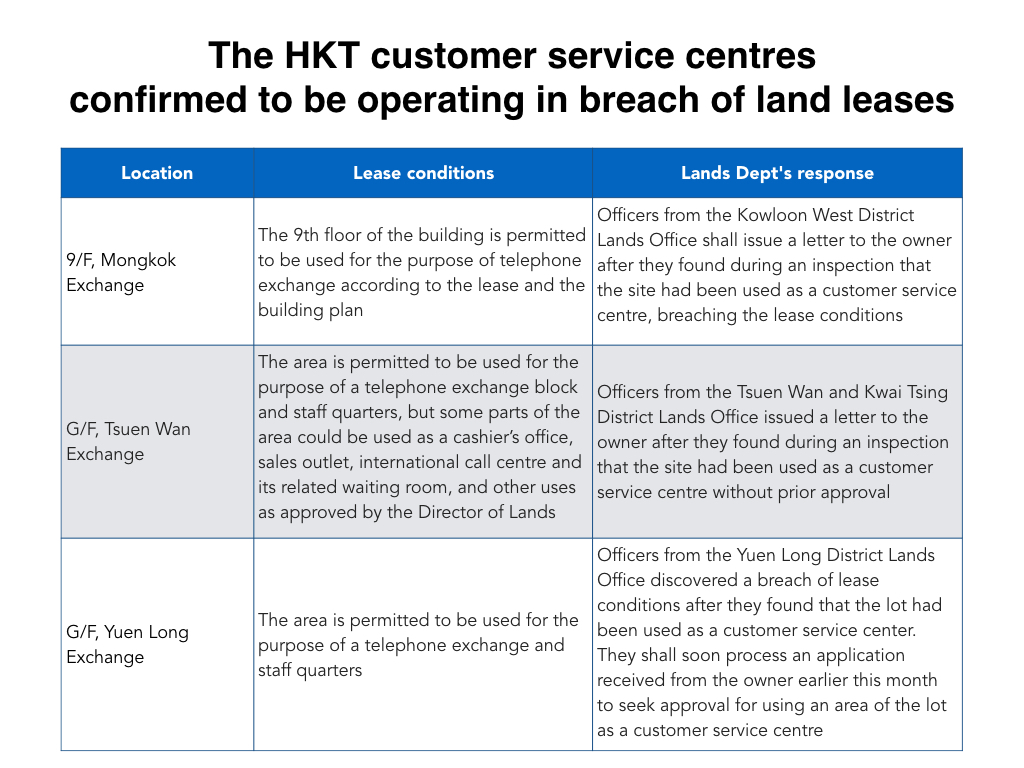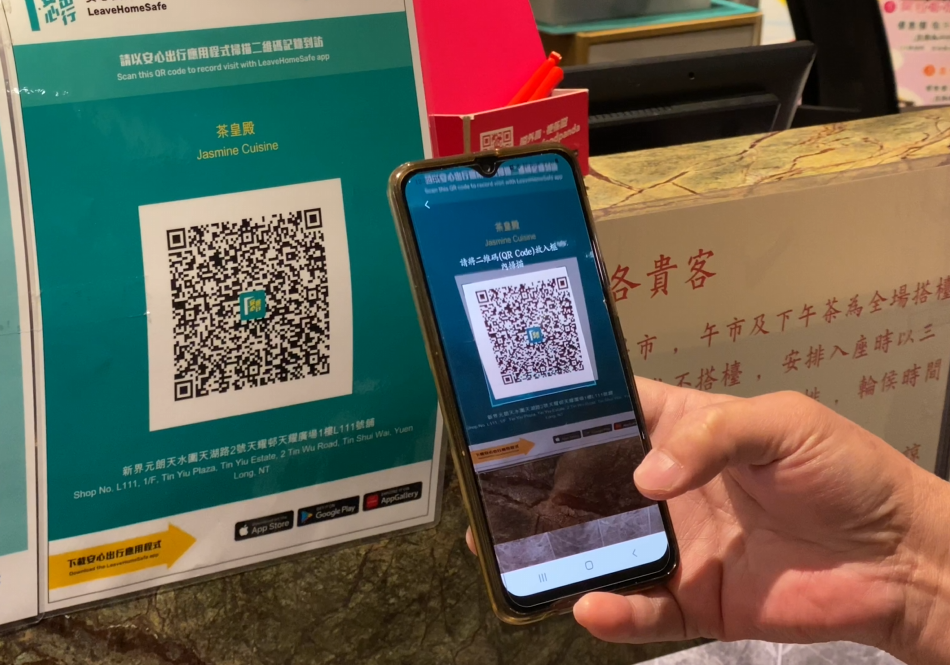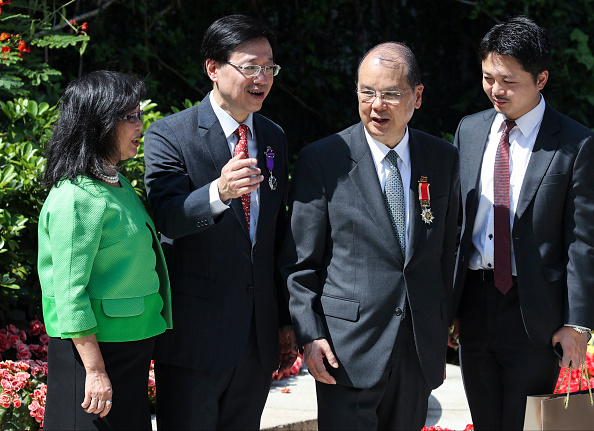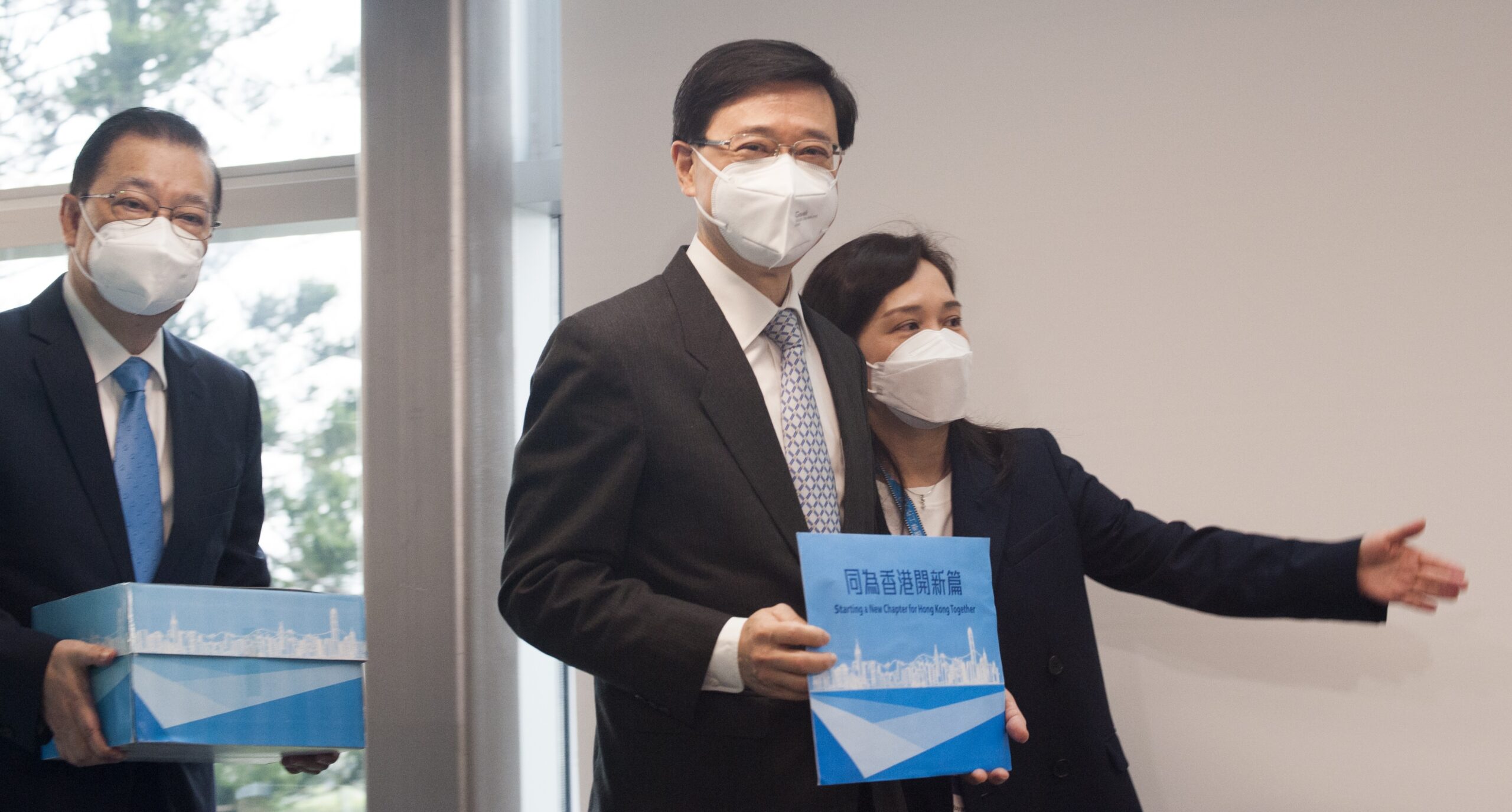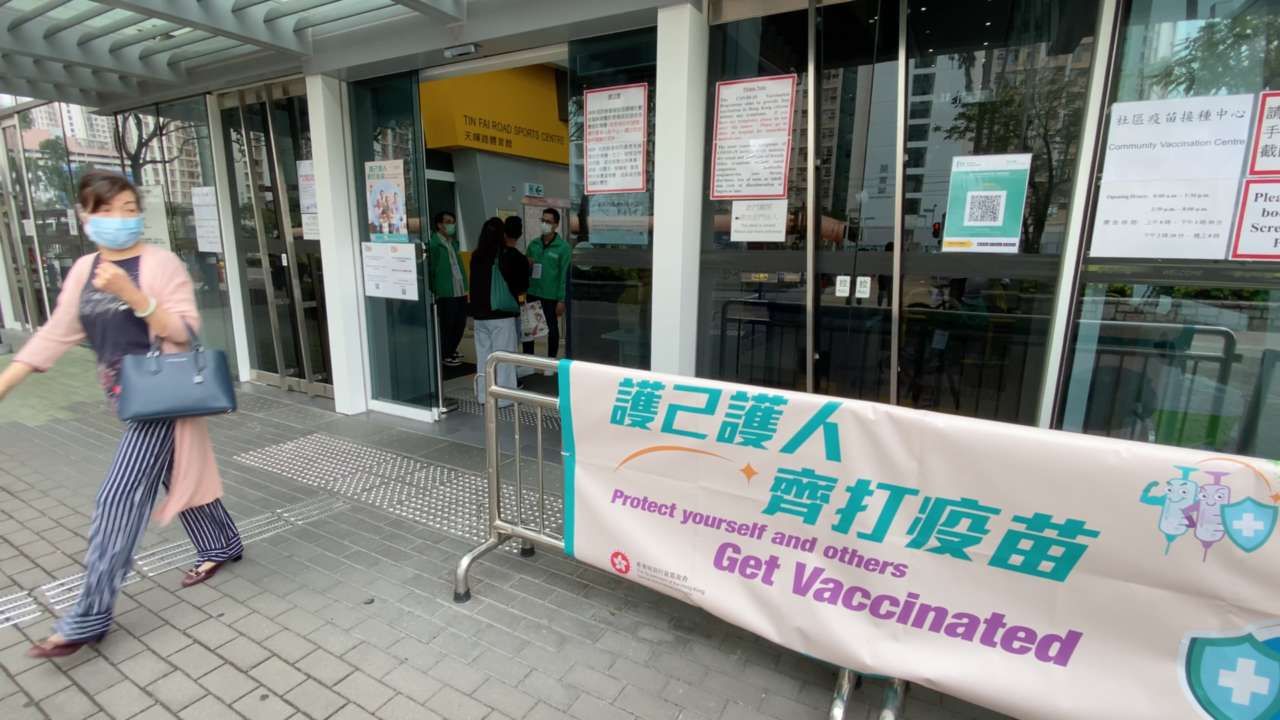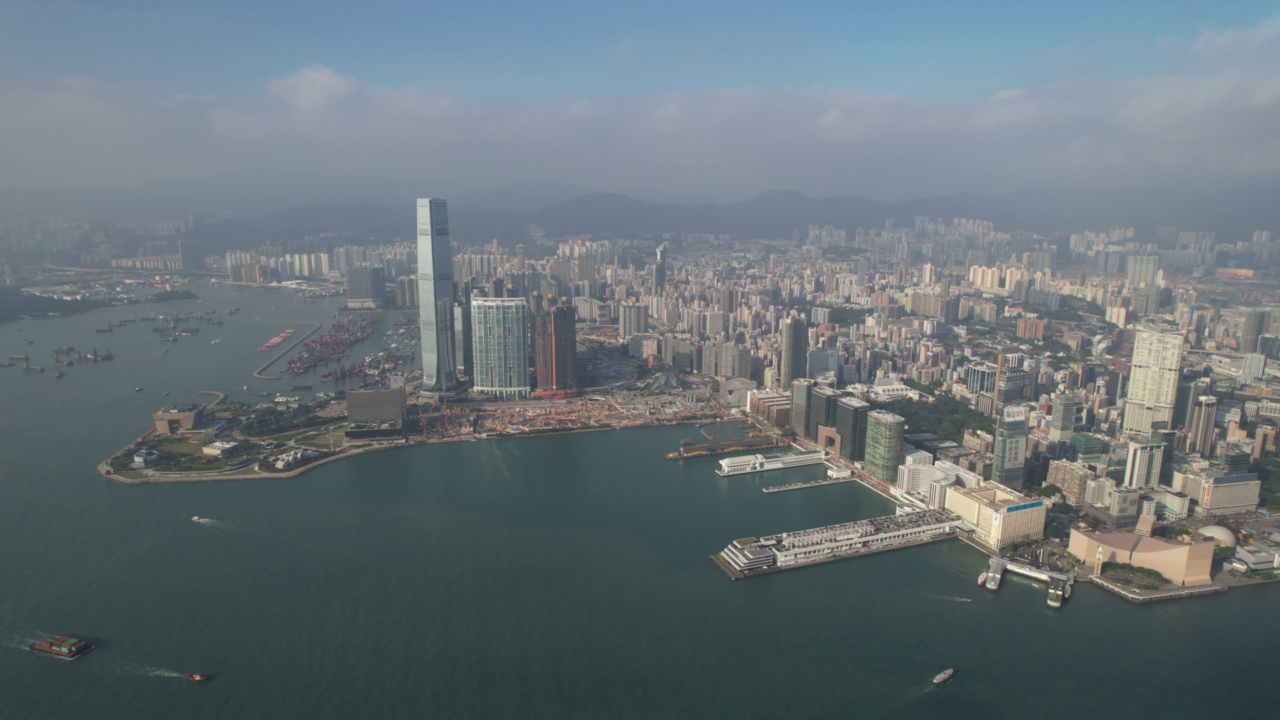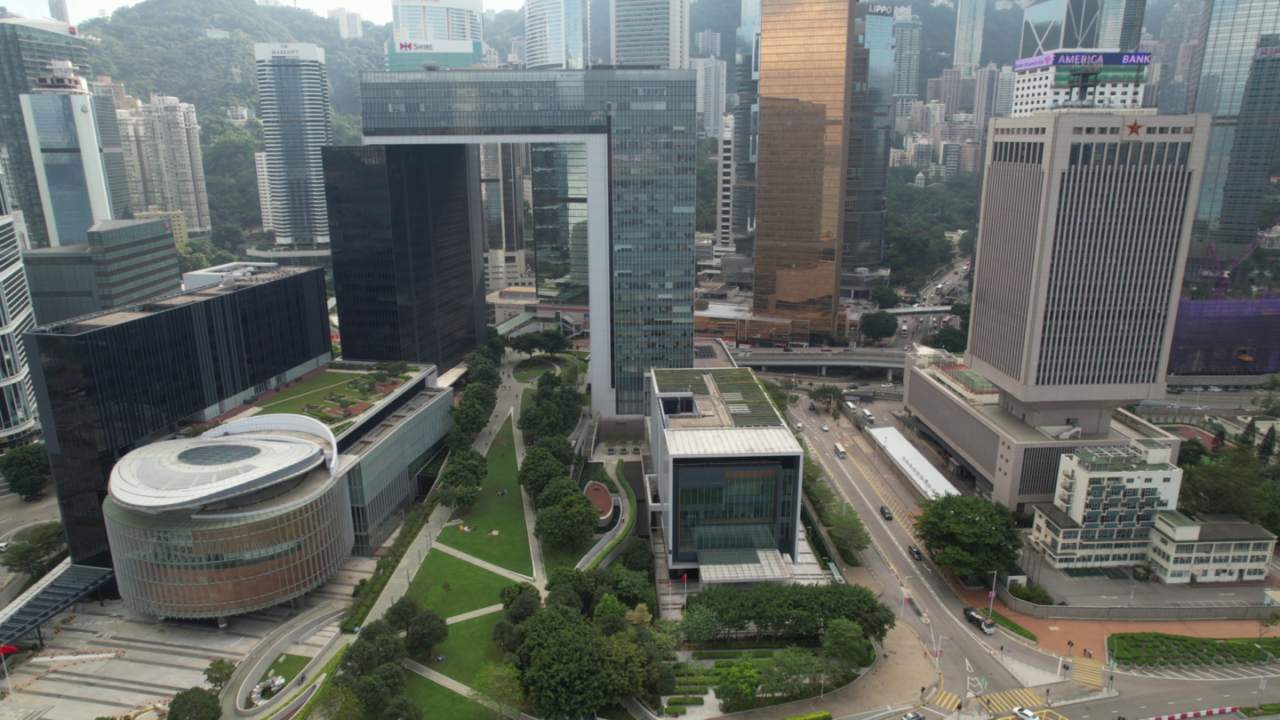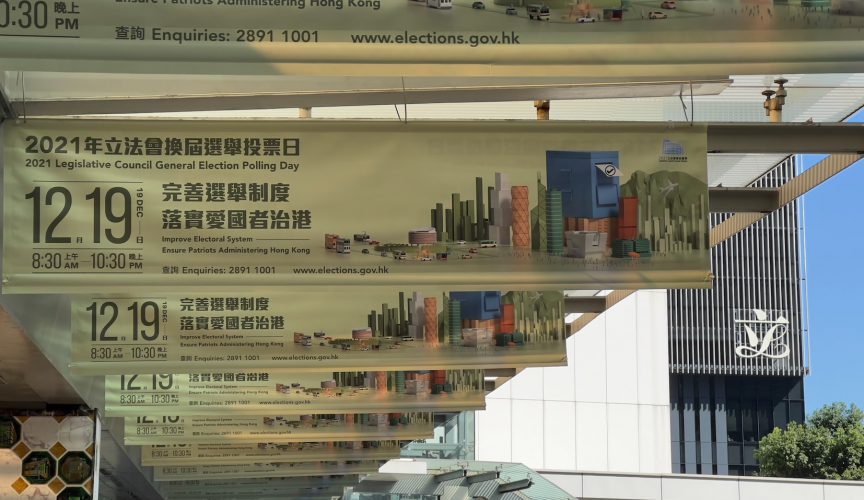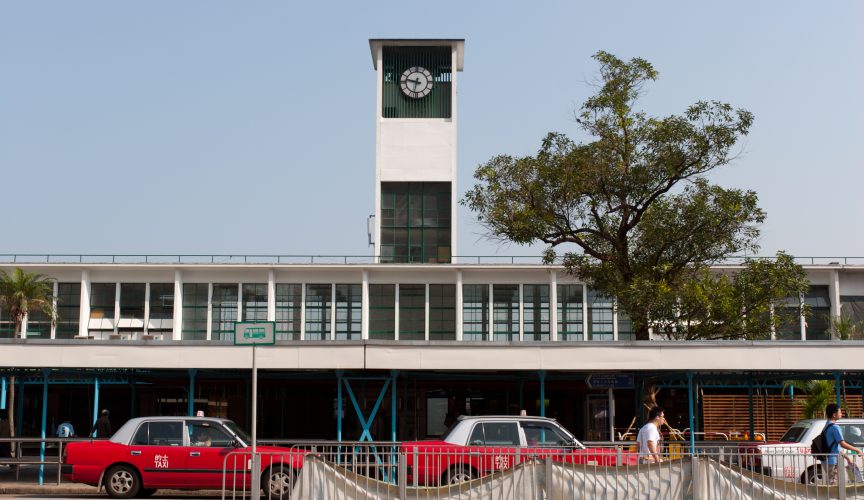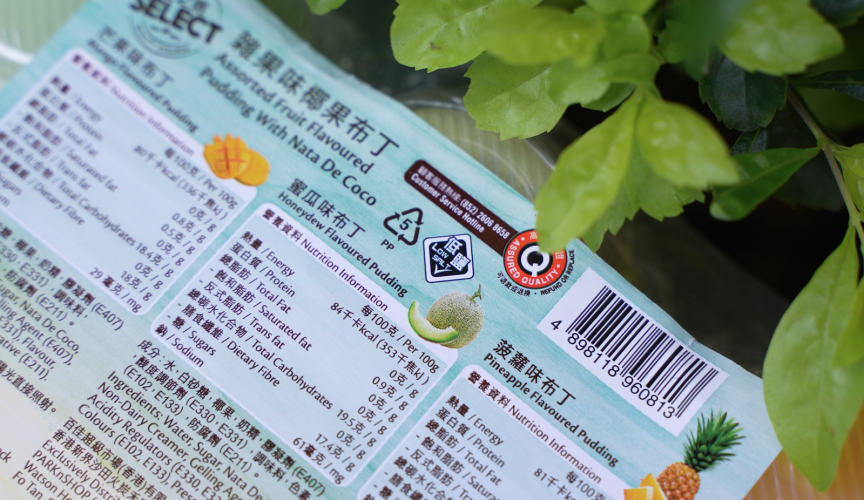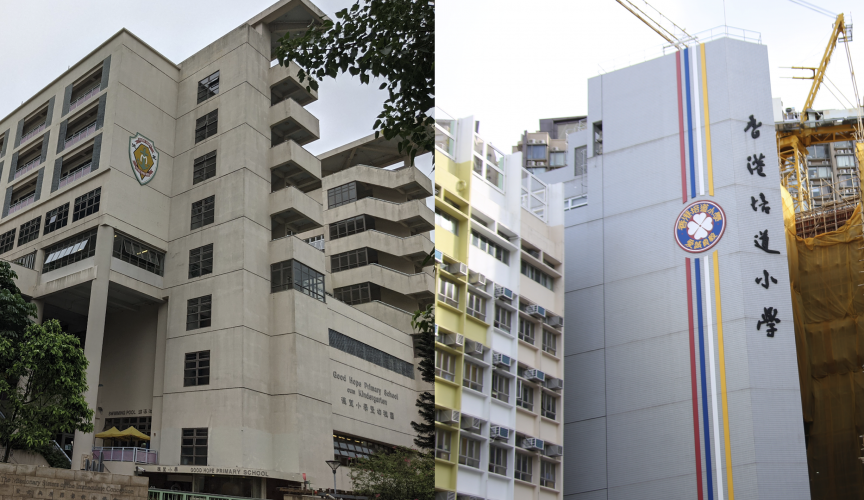It comes amid discussions about releasing some of the sites designated for housing public telephone exchange systems for residential development
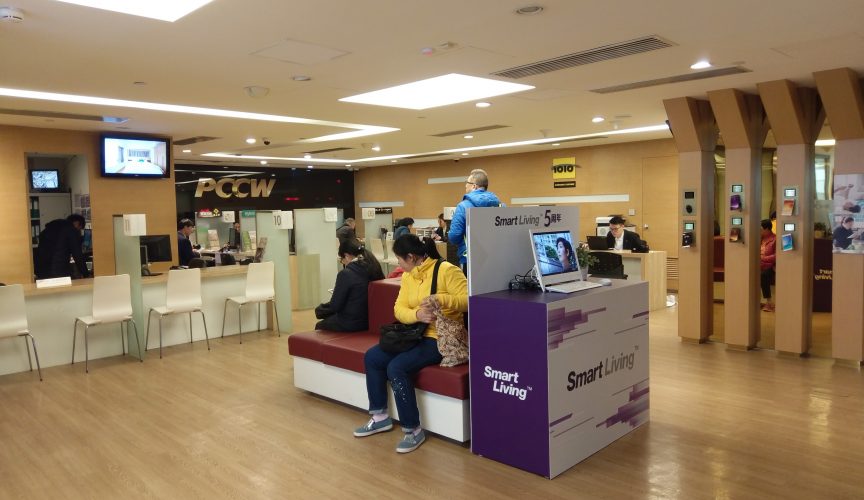
HKT, the largest telecommunications service provider in Hong Kong, has been operating customer service centres in violation of land leases in six telephone exchanges for up to seven years, an investigation by FactWire has found.
The Lands Department has also confirmed to FactWire that three of the service centres in question were operating illegally and that it would issue warning letters to PCCW Group, the parent company of HKT.
The revelation comes as the government’s Task Force on Land Supply said last month it was assessing the possibilities of releasing some of the sites designated for housing public telephone exchange systems for residential development.
PCCW currently owns more than 70 telephone exchanges across Hong Kong. Since the end of 2010, the corporation has opened a total of 10 customer service centres – seven of which are located in telephone exchanges in Yuen Long, Tsuen Wan, Mong Kok, Lai Chi Kok, Wan Chai, Causeway Bay and Sheung Wan – to provide customer service for PCCW’s landline, mobile, Now TV and broadband customers.
However, according to their respectively land leases, all but one sites are only permitted to be used as telephone exchanges or for their ancillary facilities, while the service centre in West Exchange Tower in Sheung Wan is located on one of the 12 floors allowed to be used as offices – a practice some lawyers deemed not unlawful.
In Wan Chai customer service centre, located in the basement of Lockhart Exchange, an HKT salesperson tried to sell an undercover FactWire reporter a discounted laptop, among the likes of smart TVs, wireless routers and other home appliances that were on display. Also available was a showroom showcasing PCCW’s swanky smart home gadgets, in addition to the usual services such as gift redemption, contract enquiry and technical support. Customers could order products in the centre, where staff would make the actual purchase on the sales hotline and have them delivered in a few days.
According to another HKT employee, the Wan Chai centre is the largest of all, at around 2,000 sq ft. FactWire reporters have visited all of the six locations that are suspected of operating in violation of lease terms and estimated their total floor area to be about 9,500 sq ft.
No Prior Approval
In response to FactWire’s enquiries, the Lands Department said it had visited three of the six service centres and could confirm that they were operating without the department’s permission.
The department said the site in Yuen Long shall be used as telephone exchange and staff accommodation while the ninth floor of Mong Kok Exchange was designated as telephone exchange only.
On the Tsuen Wan site, HKT could use part of the ground floor as a cashier’s office, sales office, international call centre and its waiting room, or other uses permitted by the director of lands, but it had never applied for any waiver or paid the incurred waiver fee with regard to the existing service centre.
The department added that it had issued warning letters in relation to the aforementioned sites requesting HKT to ‘rectify the lease breach within a specified time’. But it did not answer if the department would recover the outstanding waivers for the past seven years.
Meanwhile, the department said since the respective land leases allow HKT to operate ‘ancillary offices’ in Lai Chi Kok Exchange, Wan Chai’s Lockhart Exchange and on the lower 12 floors of Causeway Bay’s East Exchange Tower, it would visit the sites and determine if there were breaches of lease conditions.
In an email response, HKT said it had been in close contact with the Lands Department in with regard to the uses of its telephone exchanges but was ‘unable to provide anymore details’.

However, according to Duncan Ho Dik-hong, a barrister and member of the Progressive Lawyers Group, given the historical background of the land leases, a telephone exchange should be interpreted as a building for storing equipment that connects telephone calls, whereas its ‘ancillary offices’ should be restricted to offices that support its operations.
Customer service centres, as places where customers are served, would be permitted if the lease had stated ‘offices’ as allowed use instead, he added.
ears of Fee Evasion
Under current regulations, any leaseholder wishes to carry out activities that do not comply with his lease conditions must obtain temporary waivers from the District Lands Office or apply to change the conditions. In HKT’s case, if it had applied to operate customer service centres in telephone exchanges and that the Planning Department or the District Lands Office approved its applications, it would had to pay a land premium or waiver fee.
According to Ho, the waiver fee is calculated based on the difference in annual rental value before and after the issue of the waiver. The total outstanding waiver fees owed by HKT for operating service centres in telephone exchanges without prior approval could be estimated in reference to the rental prices for similar office spaces in the same district, or any previous similar waivers granted by the authorities.

Out of the 10 customer service centres run by HKT, seven are located in telephone exchanges, while the other three are in rented prime office spaces in Kwun Tong, Shatin and Tsim Sha Tsui.
2017 average rental data from the Rating and Valuation Department shows that a grade A office in the Wan Chai and Causeway Bay area cost $73 per square foot per month, compared to $61 in Yau Ma Tei and Mong Kok. In other words, if HKT were to move its three customer service centres in Mong Kok, Wan Chai and Causeway Bay to grade A offices, each 1,500 sq ft, in the same district, that would cost the company $310,000 in rents every month.
For a period of time, Hong Kong Telephone – the predecessor of HKT – and its current owner PCCW did obtain temporary waivers for carrying out other uses in some of its telephone exchange properties.
Between 1997 and 2000, for an annual fee of $560,000, the then Hong Kong Telephone obtained a waiver to open a 1,560 sq ft telephone store on the ground floor of Tsuen Wan Exchange. The fee was reduced to $340,000 when the new leaseholder PCCW renewed the waiver in 2000 for another three years.
Hong Kong Telephone was also once granted a temporary waiver to operate a 1,076 sq ft customer service centre on the ground floor of Wan Chai’s Lockhart Exchange between 1989 and 1995. The annual waiver fee was $445,000 in the first three years, which was increased to $648,000 in the subsequent three years.
In 2000, Pacific Century CyberWorks acquired Cable & Wireless HKT, the parent company of Hong Kong Telephone, which was subsequently renamed to PCCW-HKT Telephone.
Profiting From Public Lands
Except Causeway Bay’s East Exchange Tower, all of the six telephone exchanges in question are situated on areas zoned for government, institution or community (GIC) use in the government’s outline zoning plans.
According to the Planning Department, public utilities such as telephone exchange are included in uses that are always permitted on GIC sites, while commercial use must obtain planning approval from the Town Planning Board.
Whether a customer service centre requires such an approval would depend on its size and actual operation, the department added.
As the sole provider of landline service before 1995, Hong Kong Telephone obtained more than 70 sites through private treaty grants for housing telephone exchange facilities and other related uses. These land leases are normally granted to private or non-governmental organisations for specific purposes such as educational, welfare, religious, public housing or public utilities. Grantees are required to pay full market premiums for lands granted for public utilities purpose.
When Pacific Century CyberWorks acquired 54 per cent stake in Cable and Wireless HKT in 2000, the ownership of these lands was also transferred to PCCW, which was formed from a merger of the two companies.
During its unsuccessful privatisation attempt in 2008, PCCW declared that it owned 75 telephone exchanges and related sites. In the spin-off and seperate listing of HKT in 2011, the company also declared its ownership of two telephone exchanges, in addition to another 70 similar sites licensed from PCCW for over $2 billion.
This story is picked up and reported by the following news media:

